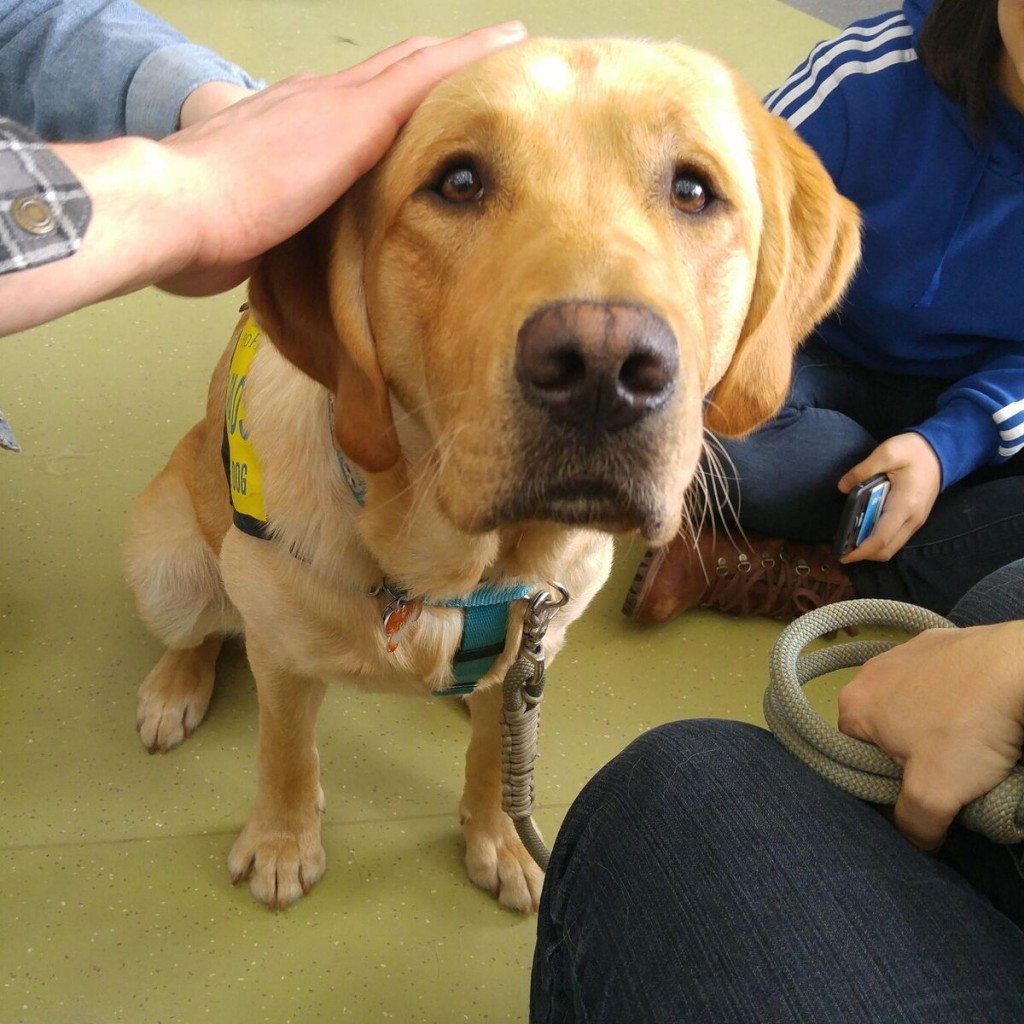
Volunteers donate their time to help students and puppies with their work
By Greg Waldock, Staff Writer
On April 10, therapy dogs visited the Douglas College New Westminster campus to spend time with students. The dogs were with the Pacific Animal Therapy Society (PATS), part of Assistance Dogs International, which trains pets to assist people with any disability or need apart from blindness. Animal therapy has been growing in colleges and universities worldwide, and Douglas College and other BC institutions will often bring them in during midterms and finals to help students relieve stress with head scratches and a comforting dog presence.
Attending events like this is a common way for new puppies to get comfortable around large, loud crowds by meeting so many new people. As such, almost all the dogs present on April 10 were around one year old, and still getting used to the job. They can often get skittish or tired and will need a solid day of recovery time after a therapy event. For both the dogs and their owners, this is a real and serious job. Though all puppies enjoy belly rubs and attention, the constant socializing can easily get exhausting, and the dogs require strict training to keep themselves controlled. This training is also why a service dog walking with a person should never be disturbed without express permission of their owner, as it can easily confuse the dog about what counts as play time and what counts as work time.
The dogs at the event were pets owned by volunteers who donated their time to help both the students and the puppies. While some volunteers raise service dogs for a living, others are ordinary pet owners who wanted to help out. PATS and Assistance Dogs International are built to accommodate and provide training for both. There are also naming conventions for each litter. Some of the dogs at the event were named after dance styles or blues artists.
After training is finished, most dogs will be able to fetch food or water from a fridge, pick up dropped items, assist with dressing and household activities, and provide stable companionship for their human. Therapy events like the one at Douglas are a huge help for the puppies to learn how to control their impulses to help humans throughout their day, whether as a specific disability assistance animal or just as a friendly pet.


